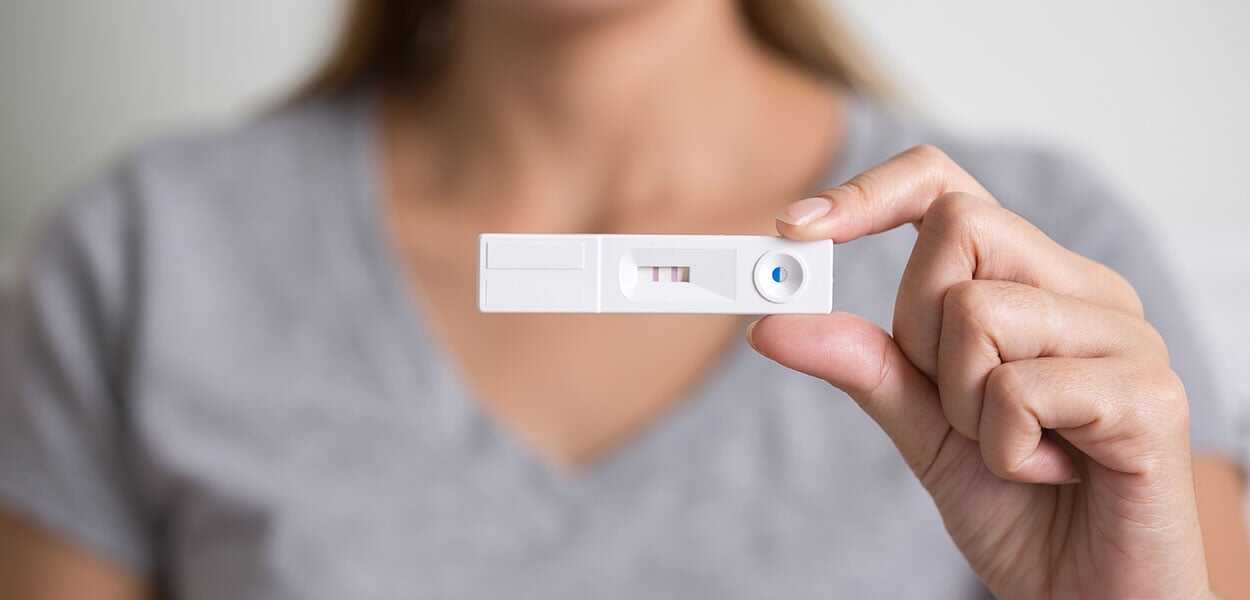Diagnostic Testing Systems
Plastic empty cassettes are pivotal in diagnostic testing systems due to their reliability and efficiency. These devices are used extensively in clinical laboratories for holding samples securely, maintaining their integrity throughout the analytical process. According to industry data, plastic cassettes offer an accuracy rate of over 95%, which significantly outperforms traditional materials like glass. This high effectiveness is due to the non-reactive nature of plastics, which reduces sample contamination risks, thereby ensuring clearer test results.
In laboratory environments, plastic cassettes are preferred over glass alternatives because of their enhanced safety features and cost-effectiveness. Glass can pose safety hazards such as breakage and potential contamination, while plastics are durable and provide a sterile option that minimizes these risks. Furthermore, the use of plastic decreases the chances of cross-contamination between samples, leading to more precise diagnostic outcomes and contributing to better patient care.
Urine Sample Collection Containers
Utilizing plastic urine sample collection containers is critical for achieving accurate diagnostics. Their design ensures that samples remain uncontaminated, thereby maintaining the integrity needed for reliable test results. Research has demonstrated that using disposable plastic containers reduces the risk of cross-contamination significantly when compared to reusable options, enhancing both patient safety and diagnostic accuracy.
Plastic offers several advantages over traditional materials in terms of hygiene and patient comfort. A study highlighted that disposable plastic containers are more comfortable for patients and ensure higher compliance rates during sample collection. In a clinical setting, using these containers eliminates the need for intensive sanitization processes associated with non-disposable alternatives, thereby reducing contamination risks and improving workflow efficiency.
Pharmaceutical Research Applications
In pharmaceutical research and development, plastic empty cassettes play a crucial role. They provide a reliable and standardized means for handling and analyzing pharmaceutical samples, which is essential for maintaining the accuracy and consistency of research outcomes. These cassettes facilitate efficient sample processing, allowing researchers to conduct multiple assays without compromising on sample integrity.
Plastic cassettes contribute significantly to improving operational efficiencies in laboratories. They enable faster sample throughput due to their simple handling procedures and compatibility with automated systems. Evidence from recent studies suggests that laboratories using standardized plastic cassettes report an efficiency gain of up to 30% in various testing protocols. This enhances productivity and reduces potential errors, leading to faster and more reliable pharmaceutical research results.
Size and Capacity Specifications
The size and capacity of plastic empty cassettes play a crucial role in their functionality within the medical sector. These specifications allow the cassettes to meet diverse medical requirements by accommodating various sample types and volumes. Here's an overview of how size variations enhance practical applications:
1. Size Range: Plastic cassettes come in numerous sizes to suit specific needs such as small, medium, and large based on laboratory or hospital specifications.
2. Custom Solutions: Hospitals and labs may request custom-sized cassettes that optimize workflow efficiency, making handling and storage more manageable.
3. Real-world Applications: In practice, custom size applications have facilitated faster sample processing and enhanced waste management efficiency within medical environments.
The availability of different sizes enables adaptation to unique medical testing requirements and ensures seamless integration into laboratory processes.
Material Grade Selection
Understanding the material grades used in plastic cassettes is integral for ensuring performance and safety. Different grades of plastic influence the durability, safety, and compliance of medical products:
1. Plastic Grades: Various grades like polypropylene and polyethylene are commonly used, each offering distinct advantages in terms of durability and chemical resistance.
2. Impact on Performance: Higher-grade plastics typically offer superior performance under demanding conditions like high temperatures or exposure to chemical agents.
3. Case Studies: Suppliers report enhanced material performance in rigorous medical settings, demonstrating the necessity for careful grade selection to ensure reliability and safety.
Selecting the appropriate material grade is vital for maintaining the efficacy and safety of medical products, catering to regulatory standards and operational demands.
Branding and Barcode Integration
The integration of branding and barcode systems in plastic cassettes is essential for improving visibility, tracking, and compliance within medical settings. Branding helps distinguish products, while barcodes streamline operational processes:
1. Visibility: Custom branding indicates ownership or specific medical use, reinforcing product identification and reducing mix-up incidents.
2. Enhanced Tracking: Barcodes facilitate efficient sample tracking, ensuring compliance with safety standards and regulatory requirements.
3. Efficiency Improvements: Data illustrate significant improvements in error reduction and workflow efficiency through the application of customized branding and barcode solutions.
Through effective branding and barcode integration, healthcare providers can achieve superior inventory management and maintain stringent compliance within their operations.
Hygienic Disposable Design
The hygienic design of disposable medical products plays a crucial role in preventing hospital-acquired infections, which are often a significant concern in healthcare settings. Disposable plastic cassettes reduce cross-contamination risks, ensuring a sterile environment since they are intended for single-use and can be easily disposed of. Statistics reveal that hospitals using disposable products have experienced a notable reduction in infection rates. For instance, a study found a 30% decrease in infection cases linked to surgical procedures following the adoption of disposable medical instruments. Experts emphasize maintaining high standards of sanitation in hospitals and using disposable cassettes as a best practice for waste management and infection control. Hygiene protocols suggest the regular usage and disposal of such products to enhance patient safety.
Cost-Effective Mass Production
Plastic cassettes are economically beneficial, especially when produced in large quantities, which significantly reduces costs. The mass production of plastic empty cassettes allows for bulk purchasing, saving medical facilities money compared to reusable options. Comparative studies have shown that disposable items can lower operational costs when considering the sterilization and maintenance needs associated with reusable counterparts. Over time, healthcare providers adopting these mass-produced disposable cassettes witness substantial savings that also streamline their expenditure relating to sanitation and inventory management. This economic viability is a key advantage that encourages the integration of disposable products in medical facilities globally.
Compatibility with Automated Equipment
Plastic cassettes are designed for seamless compatibility with automated laboratory systems, which enhance medical testing efficiency. These cassettes are precisely engineered to fit automated machinery, reducing manual handling and increasing workflow productivity. Data-driven insights reveal that labs using automated systems with compatible disposable cassettes have seen significant improvements in sample processing speed. For example, laboratories report increased throughput rates, allowing them to handle greater volumes with accuracy. Successful integrations in such settings exemplify how leveraging automation and disposable products can dramatically boost productivity without compromising the quality of results. This compatibility underscores the critical role of plastic cassettes in modern medical environments.
ISO-Certified Manufacturing Standards
Ensuring a supplier is ISO-certified is crucial for the quality assurance of medical cassettes. ISO standards, such as ISO 13485, specifically focus on the quality management systems pertinent to medical devices, assuring that medical cassettes meet global quality expectations. Organizations like the International Organization for Standardization and the Food and Drug Administration (FDA) endorse the compliance of medical suppliers with these rigorous standards. When evaluating potential suppliers, it's practical to examine the details of their ISO certifications, scrutinizing their scope to ensure they cover the specific product needs. Opting for ISO-certified providers ensures that the plastic urine collection containers and other disposable medical products meet high-quality and safety standards.
Custom Prototyping Services
Custom prototyping services play a vital role in the development of specialized plastic cassettes tailored for unique healthcare applications. Through case studies, we see that many medical innovations reach the market due to successful prototyping processes that allow for efficient design iterations. For instance, custom prototypes have enabled the development of medical testing cassettes that cater specifically to niche diagnostic applications. Engaging in custom prototyping can entail higher upfront costs and lead times, but the potential benefits of developing a product that precisely meets the functional requirements of healthcare providers can outweigh these initial investments. Suppliers offering these services can facilitate innovations that revolutionize patient care.
Regulatory Compliance for Medical Devices
Navigating the regulatory landscape for medical cassettes and products is essential for selecting a reliable supplier. According to FDA guidelines, medical devices must adhere to strict compliance standards, including safety and efficacy evaluations. Suppliers should demonstrate a consistent history of regulatory compliance to provide medical facilities with confidence in their products. It's advisable to select suppliers who exhibit transparency in their regulatory processes and maintain up-to-date certifications that align with governmental and international standards. Suppliers with a proven track record for compliance offer a competitive edge, assuring healthcare providers of their commitment to safety and quality in medical devices such as disposable medical cassettes.
Table of Contents
- Diagnostic Testing Systems
- Urine Sample Collection Containers
- Pharmaceutical Research Applications
- Size and Capacity Specifications
- Material Grade Selection
- Branding and Barcode Integration
- Hygienic Disposable Design
- Cost-Effective Mass Production
- Compatibility with Automated Equipment
- ISO-Certified Manufacturing Standards
- Custom Prototyping Services
- Regulatory Compliance for Medical Devices

